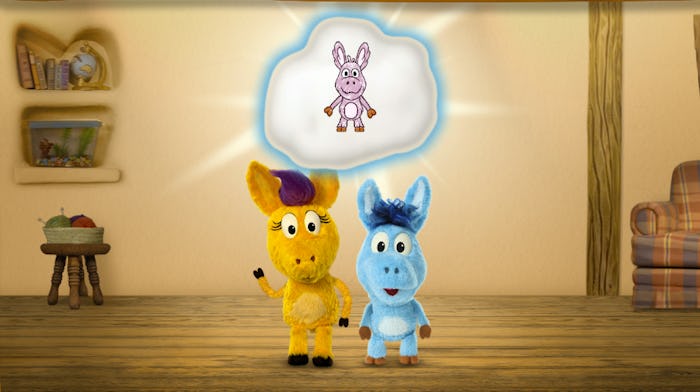Entertainment

New Cousin Hodie Playdate Game Helps Kids Identify Emotions
It was released on PBS Kids during Autism Awareness Month.
PBS Kids has debuted a new video game designed to help kids identify their emotions with clear language. Cousin Hodie Playdate is a free online game set in the world of Donkey Hodie, the popular PBS Kids puppet series spinoff from Fred Rogers Productions (Mr. Roger’s Neighborhood, Daniel Tiger’s Neighborhood), and Spiffy Pictures (Nature Cat). The game helps kids to practice recognizing their own emotions and the emotions of their friends and family in a low pressure way.
Created by Fred Rogers Productions and Curious Media, Cousin Hodie Playdate launched on PBS Kids on April 12 as part of Autism Acceptance Month. This is an open-ended “sandbox” experience is intended to help foster identifying and responding to different kinds of emotions, something folks with autism might need to work harder to understand. The game introduces a new character called Cousin Hodie, and young players are encouraged to figure out how Cousin Hodie & Donkey Hodie might be feeling in a game of Dinko Doodle Disc Drop.
Throughout the course of the game, the Hodies demonstrate a spectrum of feelings and players are invited take a break from adding toys to the board and dropping discs to figure out how the on-screen characters are feeling be exploring and choosing multiple choice answers.
Cousin Hodie Playdate is a sweet extension of the Donkey Hodie universe, the musical show about a cheerful and upbeat young donkey that has been a hit on PBS Kids since 2021. As series creator David Rudman told Romper that year, “[Families] will be rooting for Donkey to succeed. She’s so full of hope and so optimistic, people will want her to make her dreams come true.”
Cousin Hodie Playdate features a variety of settings like visual support, highlighted interactive mode, and reduced visual effect specifically tailored to make it easier for players of different abilities to engage and enjoy. Players and their caregivers can even change settings for emotions and how frequently they occur, which will be helpful for little ones who might want to either focus on a specific emotion or avoid an emotion that might feel triggering for them.
The game is a great way for fans to continue to engage in the material they love and work on developing new skills in the process — all in a lively, low-pressure environment. We call that a win-win.